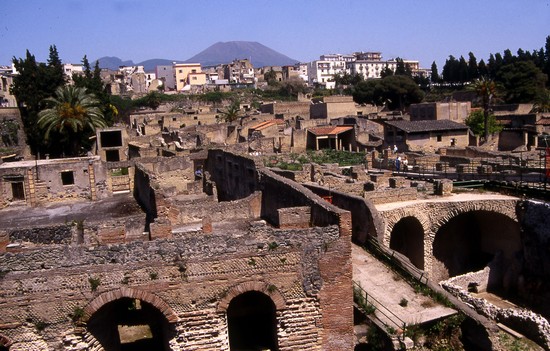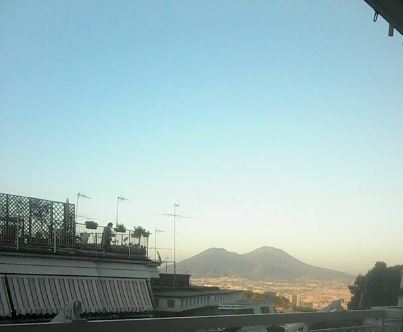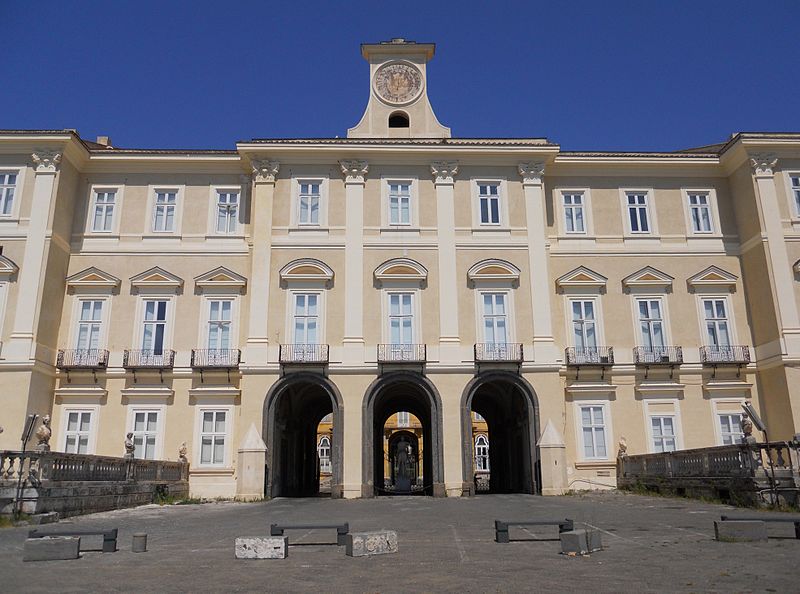
“I Rent Bike” Tour: “Pompeii & Vesuvius by Villa Signorini”

Arrival Friday in hotel. The following day you will leave Villa Signorini to arrive in Pompei – Villa dei Misteri. After a visit to the most famous archaeological site in the world, and a brief refocus, you will head to the slopes of Mount Vesuvius in Torre del Greco, from which you will begin the tough but exciting ascension of the volcano. Return and overnight in hotel.
1° day: Arrival and accomodation in hotel;
2° day: Breakfast and bike tour to Pompeii and Vesuvius; Packed lunch. Return in hotel;
3° day: Breakfast. End of services.
Path: Medium difficulty
Track length: about 55km
Difference in altitude: about 1000 mt.
Journey time: about 4 hours
(visits not included)
Journey time with visits: about 5/6 hours


Point of Interest
Pompeii

Pompeii was an ancient Roman town-city near modern Naples. Pompeii, along with Herculaneum and many villas in the surrounding area, was mostly destroyed and buried under 4 to 6 m (13 to 20 ft) of volcanic ash and pumice in the eruption of Mount Vesuvius in 79 AD. Researchers believe that the town was founded in the seventh or sixth century BC by the Osci or Oscans. It came under the domination of Rome in the 4th century BC, and was conquered and became a Roman colony in 80 BC after it joined an unsuccessful rebellion against the Roman Republic. By the time of its destruction, 160 years later, its population was estimated at 11,000 people, and the city had a complex water system, an amphitheatre, gymnasium, and a port. The eruption destroyed the city, killing its inhabitants and burying it under tons of ash. Evidence for the destruction originally came from a surviving letter by Pliny the Younger, who saw the eruption from a distance and described the death of his uncle Pliny the Elder, an admiral of the Roman fleet, who tried to rescue citizens. The site was lost for about 1,500 years until its initial rediscovery in 1599 and broader rediscovery almost 150 years later by Spanish engineer Rocque Joaquin de Alcubierre in 1748. The objects that lay beneath the city have been preserved for more than a millennium because of the long lack of air and moisture. These artifacts provide an extraordinarily detailed insight into the life of a city during the Pax Romana. During the excavation, plaster was used to fill in the voids in the ash layers that once held human bodies. This allowed archaeologists to see the exact position the person was in when he or she died. Pompeii has been a tourist destination for over 250 years. Today it has UNESCOWorld Heritage Site status and is one of the most popular tourist attractions in Italy, with approximately 2.5 million visitors every year.
Mount Vesuvius

The Vesuvius is a somma-stratovolcano located on the Gulf of Naples, about 9 km (5.6 mi) east of Naples and a short distance from the shore. It is one of several volcanoes which form the Campanian volcanic arc. Vesuvius consists of a large cone partially encircled by the steep rim of a summit caldera caused by the collapse of an earlier and originally much higher structure. Mount Vesuvius is best known for its eruption in AD 79 that led to the burying and destruction of the Roman cities of Pompeii and Herculaneum, as well as several other settlements. The eruption ejected a cloud of stones, ashes and volcanic gases to a height of 33 km (21 mi), spewing molten rock and pulverized pumice at the rate of 6×105 cubic metres (7.8×105 cu yd) per second, ultimately releasing a hundred thousand times the thermal energy released by the Hiroshima-Nagasaki bombings. More than 1,000 people died in the eruption, but exact numbers are unknown. The only surviving eyewitness account of the event consists of two letters by Pliny the Younger to the historian Tacitus. Vesuvius has erupted many times since and is the only volcano on the European mainland to have erupted within the last hundred years. Today, it is regarded as one of the most dangerous volcanoes in the world because of the population of 3,000,000 people living nearby and its tendency towards violent, explosive eruptions of the Plinian type, making it the most densely populated volcanic region in the world.
Cost per person*
6/15 pax € 139.00/person
Included services:
Guide, bicycle** and safety helmet;
Lunch package during the bike excursion;
2 nights in hotel with breakfast.
Not included services:
Admission to museums;
Attractions;
Dining.
Supplements:
Half board: 25,00 €/day;
Full board: 50,00 €/day;
Mtb bike: gratis;
e-bike: 20,00 €.
Customized tours on request

For this tour, I Rent Bike gives you a trekking bike, really comfortable for mix routes
FOR MORE INFORMATION CONTACT OUR BOOKING (+39 081.7776423) OR WRITE A info@irentbike.com OR prenotazioni@villasignorini.it
VILLA SIGNORINI: THE FINE ART OF RECEIVING
Source: I Rent Bike




